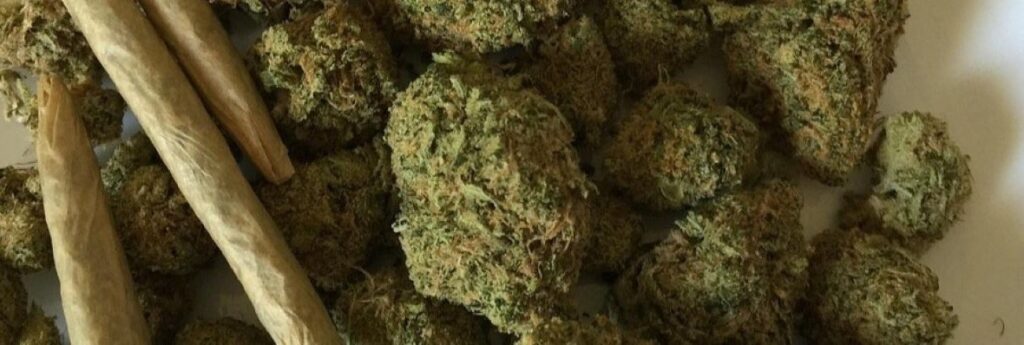Cannabis lounges were once seen as a promising new frontier in Nevada’s legal marijuana industry – the bedrock of a new Amsterdam-like weed tourism district in a Sin City on the cutting edge of hospitality innovation.
But four years after lawmakers opened the door for the businesses that offer the only place outside of a private home where people can legally consume cannabis – and one year after the business experiment began – the vision for dozens of bar-like destinations has been a decided bust.
Just a single state-licensed consumption lounge remains open.
Experts point to a variety of reasons why the concept hasn’t succeeded or given the predicted boost to the legal cannabis industry, which has seen taxable sales decline 17% since 2021. There are stringent regulations, a high financial barrier to entry, and a good old-fashioned dearth of consumer interest in the model.
Christopher LaPorte, a partner of RESET Hospitality, a Las Vegas-based cannabis consulting firm, is advising clients to create a business concept where consuming cannabis is not the primary focus.
“What we learned over the past year is that venues open today appeal to a traditional cannabis consumer, and that is not enough for these to be viable businesses,” LaPorte said. “What we’re trying to figure out is how do you make a venue that’s approachable to a larger tourist market and a larger local market.”
That view has also been expressed nationally.
“I haven’t seen consumption lounges succeed in any widespread way anywhere in the country,” said Robin Goldstein, an economist at the University of California, Davis, who studies consumer behaviour in the cannabis, food, wine and beer industries and who has visited the two Las Vegas lounges located in industrial areas just west of the Strip. “(The businesses) have to be more than just a place to sit around and smoke weed, or else you face the same challenges as anyone who wants to open a bar. You have to have a great concept or you lose your audience.”
Earlier this month, Smoke and Mirrors, which opened in February 2024 inside the Thrive Cannabis Dispensary, closed, leaving Dazed!, which is inside the Planet 13 Dispensary complex, as the only open state-licensed consumption lounge.
(The Las Vegas Paiute Tribe operates Sky High consumption lounge as part of its NuWu Cannabis Marketplace near downtown, but because the location is on tribal land, the Paiutes have their own board that oversees the facility through a compact with Nevada and is not under the CCB’s jurisdiction).
Meanwhile, 21 additional consumption lounge operations have been conditionally approved to open in Nevada but have not launched for several reasons, including financing and location issues.
Notably, the casino industry, which dominates Nevada’s business community, adds a legal hurdle. Gaming cannot have any connection with cannabis because the federal government still considers marijuana an illegal substance.
The UNLV Cannabis Policy Institute, which examines the landscape for states’ legal marijuana industry, suggested in its 2024 year-end report that profitability in the cannabis industry overall may take many years to achieve.
“Lounges stand to benefit significantly from Nevada’s tourism economy, but this might take a decade to realize,” Institute Director Riana Durrett wrote in the report.
Time to change the model
Under state law, the lounges offer two ways to consume cannabis: smoking – either through pre-rolled paper cannabis cigarettes or “joints,” or utilizing bongs, pipes and vaping devices for different strains of cannabis flowers – and in non-alcoholic mocktails that can be infused with anywhere from 2.5 to 5 milligrams of cannabis oil. Cannabis-infused food is not offered.
Some in the cannabis industry believe Nevada should step back and reconsider the business model.
“The intention behind the original law was to create a venue that is more than just a room to smoke weed,” said LaPorte, whose firm helped Thrive develop Smoke and Mirrors. “I just don’t think we’ve seen those pop up yet.”
He also wants Nevada to have a consumption lounge model that excites the market, such as by adding food and beverages.
LaPorte said venues in Southern California, such as PleasureMed in West Hollywood and Sessions By the Bay in San Diego, have multiple restaurants and bars, along with a dispensary and consumption lounge.
“They’re positioned as restaurants and entertainment venues, first, with cannabis as an additional supplemental revenue stream,” he said. “They have found a lot of success where you include other amenities outside of weed to make it an attraction.”
Last lounge standing
The lone business of its type in Nevada, Planet 13 – which also includes a dispensary and tattoo parlour – is trying to innovate with its lounge, including add food options.
Planet 13 has also used Dazed! for unique events and celebrity appearances, including Mike Tyson and rapper Wiz Khalifa, both of whom have their names tied to licensed cannabis products sold in the dispensary.
The businesses, however, are bedeviled by the law on leftovers. Purchases in the consumption lounge must be consumed on-site; any leftover product cannot be taken home.
Humm said the law was written so that patrons would consume single-use products on the property and the lounges wouldn’t be turned into de facto dispensaries.
“I would say that’s a safety hazard to require people to consume it all before leaving,” he said. “It encourages people to overconsume.”
If this article was shared with you by a friend or colleague, you may enjoy receiving your own copy of Travel Industry Today with the latest travel news and reviews each weekday morning. It’s absolutely free – just CLICK HERE.

